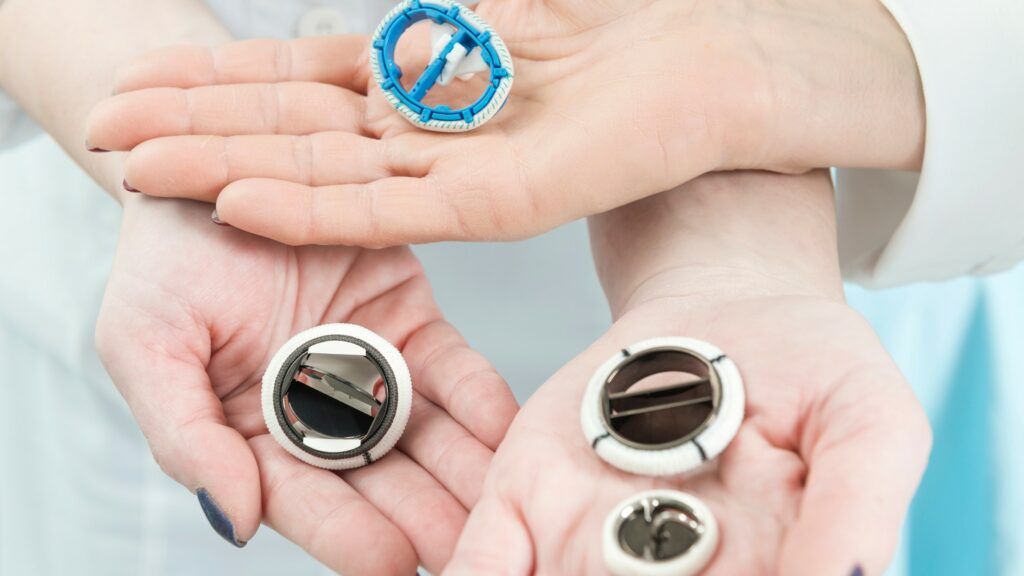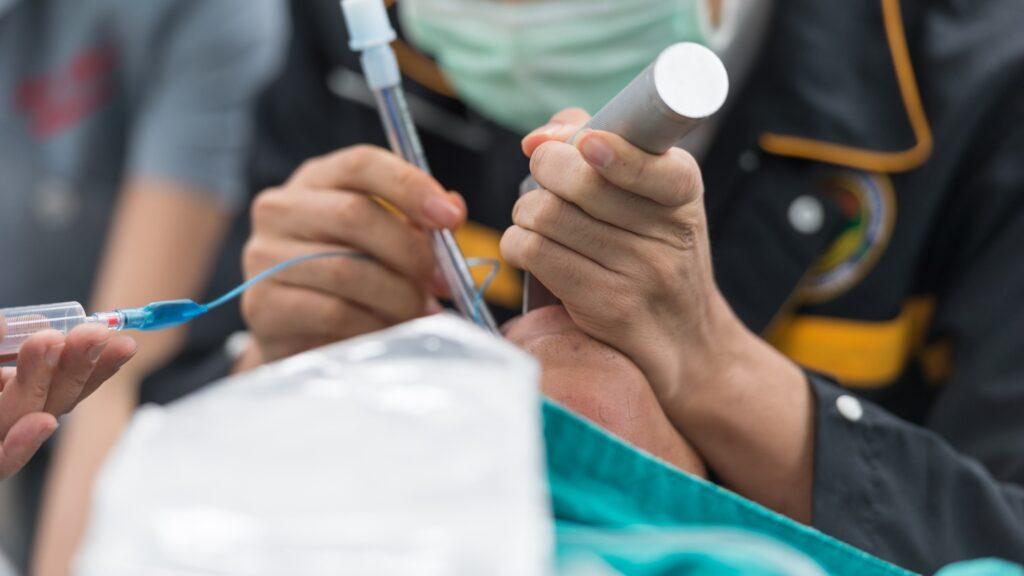The field of cardiovascular medicine has witnessed remarkable advancements in the development of Artificial Heart Valves. These innovative devices play a crucial role in restoring normal blood flow for patients with heart valve disorders. In this comprehensive guide, we will delve into the types, benefits, criteria for selection, usage guidelines, maintenance tips, and explore the latest technological advancements in Artificial Heart Valves.
Types of Artificial Heart Valves
- Mechanical Heart Valves: These valves are made of durable materials like titanium or carbon and are designed to last a lifetime. They offer excellent durability but require lifelong anticoagulant medication.
- Biological Heart Valves: These valves are typically made from animal tissues or human tissues (homografts). They offer improved biocompatibility and eliminate the need for long-term anticoagulant therapy.
Benefits of Artificial Heart Valves
- Restored Blood Flow: Artificial Heart Valves effectively restore blood flow by replacing faulty or diseased heart valves, reducing the risk of complications associated with valve disorders.
- Enhanced Quality of Life: Patients experience improved energy levels, reduced shortness of breath, and increased exercise tolerance after receiving an Artificial Heart Valve.
- Longevity: Depending on the type of valve, patients can enjoy long-lasting durability, which improves their long-term prognosis.
Selection Criteria for Artificial Heart Valves
Choosing the right Artificial Heart Valve is crucial for successful patient outcomes. Consider the following factors when selecting a valve:
- Age and Lifestyle: The patient’s age, activity level, and preferences help determine whether a mechanical or biological valve is most suitable.
- Valve Size: The size of the valve should match the patient’s anatomy, ensuring optimal blood flow.
- Risk of Anticoagulation: Mechanical valves require lifelong anticoagulant therapy, so an assessment of the patient’s ability to comply with this treatment is important.
How to Use Artificial Heart Valves
The implantation of an Artificial Heart Valve requires a specialized surgical procedure performed by a cardiac surgeon. During the surgery, the diseased valve is removed, and the artificial valve is carefully positioned and sutured in place. Close monitoring and follow-up care after the procedure are essential to ensure optimal recovery.
Maintenance and Follow-up Care
Regular follow-up appointments with healthcare professionals are crucial to monitor the function of the Artificial Heart Valve. Maintenance includes periodic echocardiograms, blood tests, and potential adjustments to anticoagulant medications. Patients should be educated on the signs of complications and advised to seek immediate medical attention if any concerns arise.
Risks and Complications Associated with the Implantation of Artificial Heart Valves
While Artificial Heart Valves are highly beneficial, it’s important to be aware of potential risks and complications that can arise during or after their implantation. It’s crucial for healthcare professionals and patients to have a comprehensive understanding of these potential challenges. Here are some of the risks and complications associated with the implantation of Artificial Heart Valves:
- Bleeding and Hemorrhage: Patients undergoing valve implantation surgery may experience bleeding at the incision site or elsewhere in the body. This risk is particularly relevant for patients receiving mechanical valves, as they require anticoagulant therapy to prevent blood clot formation.
- Infection: As with any surgical procedure, there is a risk of infection at the site of valve implantation. This can lead to serious complications and may require additional treatment, such as antibiotic therapy or even valve replacement.
- Thrombosis and Embolism: Blood clot formation (thrombosis) on the surface of the valve or within the blood vessels can occur, particularly in patients with mechanical valves. If a clot dislodges and travels to other parts of the body, it can cause an embolism, potentially leading to organ damage or blockage of blood flow.
- Valve Dysfunction: In some cases, the implanted valve may not function optimally. This can manifest as valve leakage (regurgitation) or valve stenosis (narrowing), leading to symptoms such as shortness of breath, fatigue, or chest discomfort. In such cases, additional procedures, such as valve repair or replacement, may be necessary.
- Structural Degeneration: Over time, both mechanical and biological valves can undergo structural degeneration, which may result in valve dysfunction. Mechanical valves are more durable but may require patient compliance with anticoagulant therapy. Biological valves have a limited lifespan and may require replacement over time.
- Prosthetic Valve Endocarditis: This refers to an infection of the artificial valve itself. It can occur months or even years after implantation and may lead to serious complications. Prompt diagnosis and appropriate antibiotic therapy are crucial in managing this condition.
- Risk of Anticoagulant Therapy: Patients with mechanical valves must take anticoagulant medications for a lifetime. These medications can increase the risk of bleeding, and therefore patients require careful monitoring and regular blood tests to maintain appropriate anticoagulation levels.
It’s essential for healthcare professionals to thoroughly discuss these potential risks and complications with patients considering Artificial Heart Valve implantation. Patients should be educated on the signs and symptoms to watch for and be encouraged to seek immediate medical attention if any concerns arise. Timely intervention and appropriate management can help mitigate these risks and promote successful outcomes.
New Technologies and Innovations
The field of Artificial Heart Valves continues to evolve, with ongoing advancements and innovations:
- Transcatheter Aortic Valve Replacement (TAVR): This minimally invasive procedure allows for the replacement of the aortic valve without open-heart surgery.
- 3D Printing: The use of 3D printing technology has revolutionized the production of customized Artificial Heart Valves, potentially improving patient outcomes and reducing complications.
Top Manufacturer of Artificial Heart Valves
TTK Healthcare Ltd.
Introducing the TTK Chitra Heart Valve, a cutting-edge medical device meticulously crafted by TTK Healthcare Ltd. in India. Renowned for its exceptional quality and technological advancement, this mechanical heart valve stands out for its unparalleled hemodynamics, structural integrity, and whisper-quiet operation. Catering to patients in need of a reliable cardiac solution, the TTK Chitra Heart Valve emerges as a top-rated choice in the realm of cardiovascular care.
Crafted from robust and enduring materials, the TTK Chitra Heart Valve guarantees longevity and resilience. Its sturdy construction ensures enduring performance, providing patients with a sense of security and peace of mind. Designed to withstand the rigors of cardiac function, this valve exemplifies durability, making it a dependable choice for individuals seeking long-term cardiac support.
Conclusion
Artificial Heart Valves are life-saving devices that restore normal blood flow and enhance the quality of life for patients with heart valve disorders. By understanding the types, benefits, selection criteria, usage guidelines, and maintenance tips, healthcare professionals can make informed decisions in choosing the most appropriate Artificial Heart Valve for their patients. Stay updated with the latest technologies and innovations in this dynamic field through Medzell, your reliable B2B platform for cardiovascular medical devices.



